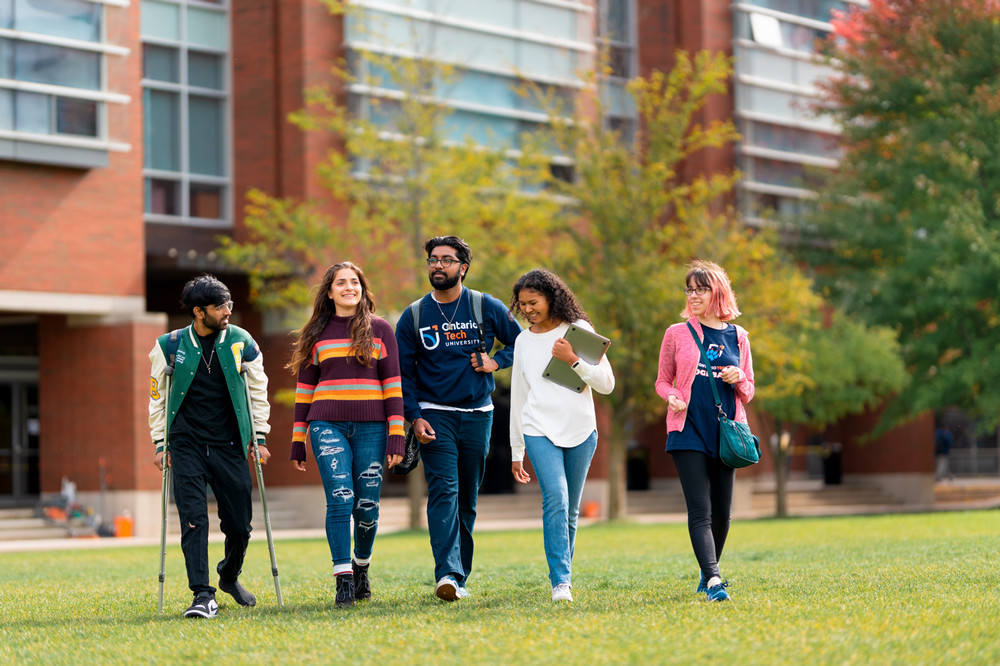Psychology (Bachelor of Science)
Overview
 Prepare yourself for a career in the science of psychology, studying biology, chemistry, physics and math, and foundational psychology courses.
Prepare yourself for a career in the science of psychology, studying biology, chemistry, physics and math, and foundational psychology courses.
Does the chronic use of drugs lead to permanent changes in the brain? How do modern pharmaceuticals help treat the symptoms of anxiety and depression? How do traumatic events influence a child’s development?
Students enrolled in the Bachelor of Science in Psychology program will receive a core first year of natural science courses, including biology, chemistry, physics, math and psychology with their second year reserved for foundational psychology courses. Students will also be required to take a number of additional science electives in their upper years of study. This program will be of particular interest to students wishing to pursue studies in the cognitive and biological underpinnings of human behaviour.
Students will receive a solid foundation in research methods and statistics as well as highly marketable skills in a variety of tech-focused domains. The knowledge students will gain from this program will put them in a strong position for additional education or direct-to-work opportunities in areas such as medicine, health care, social services and mental health.
Three specializations are offered:
Affective Science and Mental Health
Students will receive targeted education pertaining to the psychological and neural mechanisms underlying emotion, and the manner in which these mechanisms contribute to mental health or mental illness.
Cognitive and Brain Sciences
This specialization offers in-depth exploration of mental processes and neural mechanisms through cutting-edge research and hands-on learning. Students gain expertise in cognitive functions, brain imaging techniques and the application of cognitive theories to real-world problems.
Developmental and Psychological Science
Students will gain in‐depth knowledge into historical and contemporary trends regarding human development, from infancy and childhood, through adolescence, and into adulthood and gerontology.
Unique to all specializations will be the intentional cross‐cutting of traditional disciplinary and methodological lines, to bring students in contact with a variety of sociological, criminological, psychological and biological perspectives.
For more information, visit the Psychology program web page.
Did you know?
Admissions
Admissions
Current Ontario secondary school students must complete the Ontario Secondary School Diploma (OSSD) with six 4U or 4M credits including English (ENG4U), Advanced Functions (MHF4U), and two of Biology (SBI4U), Calculus and Vectors (MCV4U), Chemistry (SCH4U) or Physics (SPH4U).
Note: Admission is competitive. The specific average or standing required for admission varies from year to year. Students are selected by taking into consideration a wide range of criteria including school marks, distribution of subjects taken, and performance in subjects relevant to the academic program. Possession of the minimum requirements does not guarantee acceptance. Preference will be given to applicants with the best qualifications.
| Last year's cut-off | 70 per cent |
|---|---|
| Expected cut-off | Low 70s |
The application process and important dates/deadlines are outlined on our admissions website:
• Ontario secondary school applicants
• Ontario secondary school graduates
• Canadian out-of-province high school applicants
• International applicants
• Mature applicants (over 21 and never attended post-secondary)
• Transfer applicants
• General Arts and Science (GAS) applicants
• Home-schooled applicants
Career opportunities
- Health Services Employee
- Statistician
- Laboratory Assistant
- Pharmaceutical Representative
- Pharmaceutical Researcher
- Health Policy Analyst
- Statistical Consultant
- Psychologist
- Research Assistant
- Social Worker
- Not-for-Profit Worker
- Policy Consultant
- Policy Analyst
- Policy Developer
- Graduate studies in Social Science and Humanities disciplines
Experiential learning
Experiential learning opportunities will be fostered through volunteer, practicum, internship and directed lab research opportunities, each of which will give students hands-on experience in their field of interest.
A limited number of fourth-year students have the opportunity to acquire workplace skills through an immersive internship or practicum experience with a partner organization.
-
Sample courses
- Loading...
- Loading...
- Loading...
- Loading...
- Loading...
- Loading...
- Loading...
- Loading...
- Loading...
- Loading...
- Loading...
- Loading...
- Loading...
- Loading...
- Loading...
- Loading...
- Loading...
- Loading...
- Loading...
- Loading...
- Loading...
- Loading...
- Loading...
- Loading...
- Loading...
- Loading...
- Loading...
- Loading...
- Loading...
- Loading...
- Loading...
- Loading...
- Loading...
- Loading...
- Loading...
- Loading...
- Loading...
- Loading...
- Loading...
- Loading...
- Loading...
- Loading...
- Loading...
- Loading...
- Loading...
- Loading...
- Loading...
- Loading...
- Loading...
- Loading...
- Loading...
- Loading...
- Loading...
- Loading...
- Loading...
For program requirements, including required number of credits for completion, program maps and course descriptions, please see the academic calendar and course catalogue of Loading.... Courses are subject to change without notice.
